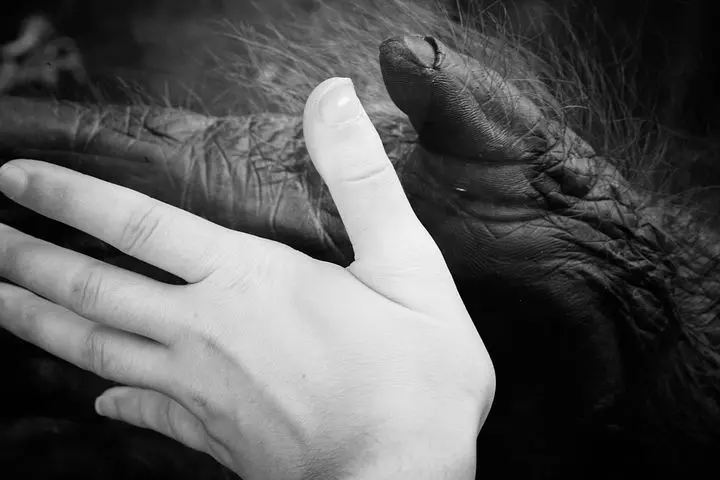[Originally published as Created to Praise God’s Name]
Self-Awareness and the Brain
Every man and woman who lives on this earth has a name. It gives them their identity. It is estimated by UNICEF that an average of 350,000 babies are born each day, each in need of a name. In most cases, they are given a name by their loving parents who seek the best for their sons and daughters. This is a distinctly human process, demonstrating man’s self-awareness apart from any other creature on earth.
Animals have ways of recognizing each other through their God-given senses, but bestowing names on one another is purely a human practice. Dogs, cats, and other domestic animals often possess names given to them by a human to mark their identity.
The right to name our children, pets, or any other creature gives us a sense of ownership, and that is ascribed only to mankind. An ability to name other creatures is a measure of self-awareness.
Where does this ability originate?
Evolutionists have attempted to explain this phenomenon using the theory that self-awareness had its origins when hominids began to work together, but they have failed miserably to produce the objective data needed to advance this hypothesis.
Scientists define consciousness as being aware of one’s body and environment, while self-consciousness is so much different. It is a complete recognition of your “self” as in your own existence. You need to be aware that you are thinking and realize your own thoughts.
It is obvious by doing this that you have gone into a much higher level of awareness. At this level, you can ask fundamental questions dealing with identity, purpose, and value. This is a unique quality that human beings possess, and it is so different that it should make us ponder the origin of this remarkable human ability.
Secular evolutionists have been attempting to answer this question by pointing to the brain.
It is true that the human brain is different than any other animal brain on this planet. The typical human brain weighs between 3 to 4 pounds with each one containing a staggering number of 100 billion neurons (nerve cells). This makes it the most complex network that has ever been discovered.
In our brains, no two nerve cells are alike. Each neuron is in contact with ten thousand other neurons for a total of 100 trillion neurological connections. If we were to straighten out this entire network into one single line, it would stretch 100,000 miles.
The brain operates as a video camera, a computer, and a communication center all in one.
Amazingly, it’s not the number of interconnections, but how the brain organizes itself with its neurons that creates individual areas to accomplish specific tasks. For example, human language is a highly complex process that makes it stand alone when compared with other forms of animal communication. Human brains have the capacity not only to process spoken language and speak it but to learn entirely new languages throughout our lifetime.
One of the most obvious distinctions in the human brain is our relatively large, wrinkly cerebral cortex. The cerebral cortex is made of gray sponge-like material that would be equivalent to the size of a 20 by 20-foot tablecloth squished, folded, and compressed around a grapefruit-sized surface, making it extremely convoluted. This increases the surface area in the cortex or outer layer of the brain exponentially. About one-third is visible, while the other two-thirds of the material is found underneath the hills and valleys of the folds of the cerebral cortex.
When one compares the human brain to an animal’s, the human’s frontal lobe stands out as being the largest. Frontal lobes are essential for motor function, problem solving, memory, impulse control, mood, and aggression. The ratio of the frontal cortex compared to the entire cerebral cortex is quite small in not only rodents but also in cats and dogs, where it accounts for only 3.5% or 7% of the total brain mass respectively.
The ratio in apes is much higher at 17%, while a human’s frontal lobes account for 29% of our brain’s mass.
Why not have even larger frontal lobes? The ability to learn, in large part depends upon the bulk of the brain in the cerebral cortex to provide information storage. We humans need this space to process all the information that comes to us via our senses.
The ability to use language, which includes not only vocabulary but also mastering grammatical structures, is stored in the vast network of the cerebral cortex. Visual images are also stored so that they can be identified.
When interfaced with language, this becomes a truly unique feature. Memories are retrieved clearly, and the ability to imagine and fantasize is also a truly human ability. This gives man the capacity to solve problems and be creative.
In the words of the outspoken atheist and prolific science fiction writer, Isaac Asimov (1920-1992),
In man is a three-pound brain, which as far as we know, is the most complex and orderly arrangement of matter in the universe.
The Genesis of Self-Awareness
Naming your loved ones, and even your pets, has its origins in Genesis, the first book in the Bible. In Genesis 2, the focus is on the history of Adam and Eve, the first man and woman on earth and the parents of the entire human race. In Genesis 1:27, it establishes that they were created in the “image of God” and given a unique position in all of creation.
Humanity has been put in a special place in all of creation. We are given a position that is “crowned with honor and glory” as it states in Psalm 8:5. Our identity is based on our ability to have fellowship with God. He has created mankind “to have dominion over the works of His hands.” (Ps. 8:6) He has given man a special ability with intellectual awareness to become a good steward of His creation. We have been gifted with the capacity to take ownership over the creatures that roam the earth. This includes the honor of giving names to all of the animals. (Gen. 2:20)
Humanity’s self-awareness originates in being created in the image of the One who loves each of us and desires to have fellowship with us for eternity. The gospel uses our self-awareness and the fact that we can know we are sinners and need the Savior to lead us back into restored relationship with our Creator and Savior.
As humans, we have been designed to worship God by using His name as revealed in Psalm 8:1, “O LORD, our Lord, how excellent is Your name in all the earth.”
King David praises God as the Creator of the universe, identifying him by His covenantal name, LORD (YHVH from Ex. 3:14). This psalm addresses God’s majesty and His sublime nature. It is perfectly natural for us to praise God, but for those who are blinded and in darkness, it is foolishness. Those who live in the light have the self-awareness that there is a need in man’s nature to revere God’s name.







